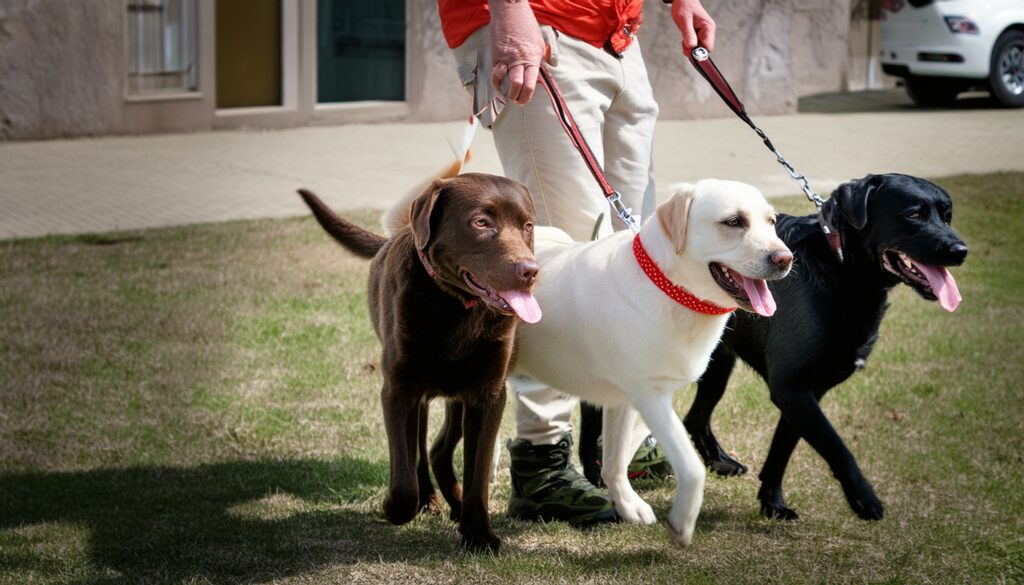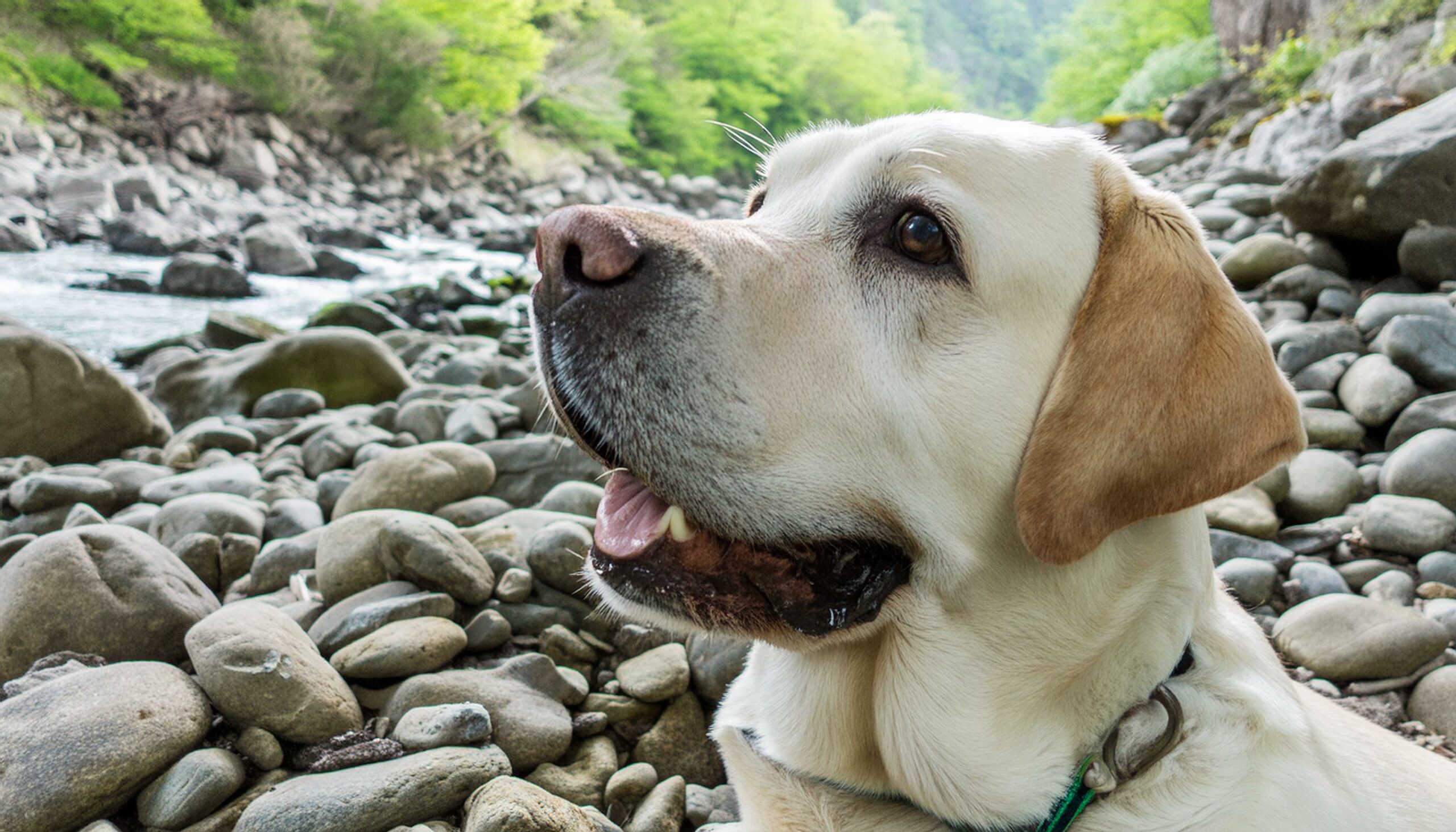Labrador Retrievers, often referred to as Labs, are among the most beloved dog breeds globally, known for their friendly disposition, intelligence, and versatility. Understanding their typical behaviors is essential for both current and prospective owners to provide them with the care and environment they need to thrive.
History of Labrador Retrievers
The history of Labrador Retrievers traces back to Newfoundland, Canada, where they were initially bred by fishermen in the early 19th century. These dogs were highly valued for their ability to retrieve fish and nets from the chilly waters of the North Atlantic. They were eventually brought to England, where they were further developed into the breed we know today.
Physical Characteristics
Labradors are medium to large-sized dogs with strong, muscular builds. They typically stand between 21.5 to 24.5 inches at the shoulder and weigh anywhere from 55 to 80 pounds, with males being larger than females. One of their distinguishing features is their otter-like tail, which is thick at the base and tapers towards the tip. Labradors have short, dense coats that come in three primary colors: black, chocolate, and yellow.
Temperament and Personality
One of the most notable traits of Labradors is their friendly and outgoing nature. They are affectionate and loyal companions, known for their gentle demeanor, especially towards children. Labradors are also highly intelligent and eager to please, which makes them relatively easy to train for various tasks. Their playful disposition often persists well into adulthood, endearing them to families and individuals alike.
Social Behavior

Labradors are inherently social animals that thrive on human companionship. They form strong bonds with their families and enjoy participating in various activities alongside them. Labradors typically get along well with other dogs and pets, especially if they are properly socialized from a young age. Their friendly nature extends to strangers, making them poor guard dogs but excellent companions.
Exercise Needs
Labradors have high energy levels and require regular exercise to maintain their physical and mental well-being. Daily walks, runs, or play sessions are essential to prevent boredom and destructive behaviors. Engaging them in activities like fetch, swimming, or agility training not only fulfills their exercise needs but also strengthens the bond between owners and their Labradors.
Feeding Habits
Proper nutrition is vital for the health and longevity of Labradors. They have hearty appetites and may be prone to overeating, leading to obesity if not monitored closely. A balanced diet consisting of high-quality dog food, supplemented with occasional treats, is essential to meet their dietary requirements. Owners should establish a regular feeding schedule and avoid free-feeding to prevent weight-related issues.
Grooming Requirements
Despite their short coats, Labradors do shed moderately throughout the year, with heavier shedding occurring during seasonal changes. Regular grooming helps manage their shedding and keeps their coat healthy and shiny. Weekly brushing with a slicker brush or grooming mitt is usually sufficient to remove loose hair and minimize matting. Baths should be given as needed, using a mild dog shampoo to avoid stripping their skin of natural oils.
Health Concerns
While Labradors are generally healthy dogs, they are prone to certain genetic health issues that owners should be aware of. Common health concerns include hip and elbow dysplasia, which can affect mobility and quality of life if left untreated. Labradors are also predisposed to obesity, especially in their later years, so maintaining a healthy weight through diet and exercise is crucial. Regular veterinary check-ups are essential to monitor their overall health and address any medical issues promptly.
Training Tips
Labradors are intelligent and eager to please, making them highly trainable for various purposes. Positive reinforcement techniques, such as praise, treats, and play, work best in teaching them obedience commands and good manners. Consistency, patience, and gentle correction are key to successful training sessions. Early socialization is also important to expose them to different people, animals, and environments, helping them become well-rounded and confident adults.
Common Misconceptions
Despite their friendly and gentle nature, Labradors are not without their challenges. Some common misconceptions include the belief that all Labradors are natural swimmers or that they require minimal exercise due to their calm demeanor. While many Labs do enjoy swimming, not all are proficient swimmers, and proper introduction and supervision are necessary, especially for young or inexperienced dogs. Additionally, Labradors have high energy levels and require regular exercise to prevent boredom and behavioral issues.
Conclusion
In conclusion, the normal behavior of a Labrador is characterized by their friendly disposition, intelligence, and high energy levels. By understanding their unique characteristics and meeting their needs for exercise, socialization, and training, owners can enjoy a rewarding relationship with their beloved companions.
Unique FAQs
Are Labradors good with children?
Yes, Labradors are known for their gentle and affectionate nature, making them excellent family pets, including households with children.
Do Labradors require a lot of exercise?
Yes, Labradors have high energy levels and require regular exercise to stay healthy and happy. Daily walks, playtime, and activities like fetch are recommended.
Are Labradors prone to health problems?
Like all breeds, Labradors may be susceptible to certain health issues such as hip dysplasia, but with proper care, including regular veterinary check-ups, many of these can be managed or prevented.
How can I prevent my Labrador from chewing on furniture?
Providing appropriate chew toys, regular exercise, and obedience training can help redirect your Labrador’s chewing behavior away from furniture.
What is the average lifespan of a Labrador?
The average lifespan of a Labrador is typically 10 to 12 years, although some may live longer with proper care and attention.
